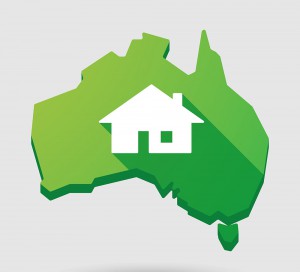Today our property markets are flat in some locations and prices are falling in other locations and there are so many mixed messages out there forecasting what’s ahead for interest rates, our economy and our property markets, that many investors are confused
Last year FOMO drove our major property markets – Fear Of Missing Out as property values rose week after week, particularly in Melbourne and Sydney.
Today its FOBE that’s driving buyer sentiment – Fear Of Buying too Early – what if prices fall further?
It is said that the 2 most powerful emotions that drive markets are fear and greed.
In fact master investor Warren Buffet advised: “I’ll tell you how to become rich….Be fearful when others are greedy and be greedy when others are fearful.”
So today I’d like to give you my thoughts on this with a lesson from history…
Twenty five years ago few would have thought of property as a good investment.
It was 1993 and interest rates had come down 3 percent over the last 2 years as the Reserve Bank tried to stimulate the economy and our faltering property markets.
By the way… this brought interest rates down to 10%, the lowest level they had been for 13 years.
Australia was just coming out of the “recession we had to have”, consumer and business confidence was low, there were too many properties for sale, buyers were scarce and some properties, particularly in top end suburbs, had plummeted in value.
A few years earlier on Black Monday of October 1987 a stock collapse of unprecedented size hit Wall Street.
However while the stock market eventually recovered, the lumbering savings and loans industry in the USA (which financed many American homes) was beginning to collapse, leading to a property funding crisis which put the financial wellbeing of millions of Americans in jeopardy.
The financial contagion that spread to the rest of financial sectors led to a recession which hit other countries whose economies were previously healthy but were economically closely linked to the United States.
This included Canada the United Kingdom and Australia.
What was happening in Australia?

To buy a typical house in mid 1993 you would have paid around:
$173,000 in Sydney;
$138,00 in Melbourne;
$121,00 in Brisbane;
$102,000 in Perth;
$156,000 in Canberra;
$110,00 in Adelaide
$96,000 in Hobart and
$132,000 in Darwin.
But over the next 25 years the value of many well located capital city properties around Australia quadrupled underscoring the wealth of many of today’s Baby Boomers and creating significant property empires for those who took property investment seriously.
Interestingly today’s property markets look surprisingly similar to those of 25 years ago.
And just like then, many of the same arguments are being floated by analysts explaining why property values can’t keep increasing as they did over the previous two decades.
I accept that much of the gains over the last twenty five years were related to structural changes that will not be repeated.
The two significant structural events that caused this massive rise in property values were:
The Reserve Bank kept inflation within a narrow band meaning interest rates could fall at a when time banks were deregulated allowing new non-bank lenders like Aussie John Symond to make cheap finance available for borrowers.
At the same time wages grew and there were more two-income households. This allowed more Australian families to buy new homes or upgrade their existing homes as their families grew.
These factors won’t carry our markets forward in the future, in fact they played out a few years ago and haven’t been relevant for the last 5 or 6 years.
We are currently in a low inflationary, low interest rate environment (not only in Australia but around the world) and there is really very little room to lower interest rates.
The effect of the extra spending power of low interest rates has washed its way through the system.
Even if the RBA doesn’t raise interest rates (and it won’t for some time yet), the banks may due to the fallout from the Banking Royal Commission.
We are now in a period of lower wages growth and more part-time jobs so it’s unlikely that the average Australian family will have more cash in their pockets to spend on property
Why our property values are guaranteed to increase in the long term
Having said that, I still see strong underlying long-term fundamentals for our property markets.
But don’t get me wrong…
I’m not suggesting we’ll have widespread double digit growth in property values for a while again (even though some suburbs will still enjoy still strong capital growth.) 
However, we don’t have the high rates of inflation like we had in the 1980’s and 90’s that required that type of capital growth rates to produce a real (after inflation) rate of return.
While it’s important to understand that while many factors like interest rates, supply and demand and market confidence, affect a country’s property prices in the short term, in the long term prices are driven by two main factors:
Population growth, and
The wealth of the nation
In Australia strong future population growth is a given and as a matter of fact so is our increasing wealth.
And this is positive news for the long-term growth of property prices.
The fact remains that as long as people keep having children and residents from other countries seek to settle on our shores, Australia’s population will keep growing at a rate faster than almost every other developed nation. 
55% of our population growth is due to immigration and, in general, these are well educated people (particularly from China and India) who are in their twenties and thirties which is the family formation stage of their lives.
Fact is: we are going to need to whole cities of new immigrants to replace the 5 million or so Baby Boomers who are going to leave the workforce over the next 15 years.
These new residents will boost our country’s economic wellbeing through the revenue raised from income taxes and all the goods and services they will buy.
And yes, that includes property.
Of course this means with more and more of us wanting to live in the same four big capital cities (but particularly Melbourne and Sydney which are the economic powerhouses of Australia), and even in the same suburbs of those capital cities, our old friend the supply and demand ratio will keep pushing up the value of well-located inner suburban properties. 
Inevitably this will make property unaffordable for some of who will remain tenants, however others will be able to afford these higher priced properties.
It also means that apartments and townhouses are likely to become the style of housing in strong demand as more people swap their backyards for balconies and courtyards; partly because of cost but also because of lifestyle choices.
They’ll be trading space (big back yards) for place (being in the right location.)
Then there’s all the good economic news
If you’re reading the general media you’d be forgiven for feeling a little pessimistic about the state of our nation. Maybe you missed some of the good news:
Sure our economy is a little sluggish, but with 27 years of consecutive growth and forecasts for further improvement, our economy is still the envy of most developed nations .
Australia’s population grew by almost 400,000 people last year.
Over 1 million new jobs have been created in the last 5 years. Today around three quarters of the almost 1,000 new jobs being created each day are full time positions.
Inflation is low and there is really little evidence that the Reserve Bank will raise interest rates until late 2019 or even 2020.
Consumer remains fickle, but business confidence is rising and that’s good for jobs creation
The Federal Budget delivers personal tax cuts for low and middle income earners
Global economic growth the strongest it has been in 6 years. Sure many countries are still struggling, but the economies of our major trading partners are performing well.
The bottom line:
While nothing in life is guaranteed, if like me, you are confident that Australia has a prosperous future, and you agree that our population is going to keep increasing and that most of us are going to want to live in much the same parts of our lucky country; you can understand why I see a strong long-term future for our capital city property markets.
Sure there is a risk in buying property, but don’t forget there is also a different risk in not buying!
So what will you do about this?
Owning real assets is a powerful wealth creator and with our property markets moving on a whole new generation of property millionaires will be created over the new decade.
However, if history repeats itself, and it most likely will, most people who get involved in property investment will not become financially independent.
Many will buy the wrong property or at the wrong time or in the wrong location.
With so many mixed messages out there about what type of what makes a good property investment it’s hard to know who to listen to.
It’s hard to know who to trust.
If you’re looking for independent advice, no one can help you quite like the independent property investment strategists at Metropole.
Remember the multi award winning team of property investment strategists at Metropole have no properties to sell, so their advice is unbiased.
Whether you are a beginner or a seasoned property investor, we would love to help you formulate an investment strategy or do a review of your existing portfolio, and help you take your property investment to the next level. Please click here to organise a time for a chat. Or call us on 1300 20 30 30.
Just click on this link to find out more and reserve your place.
Read more: propertyupdate.com.au

